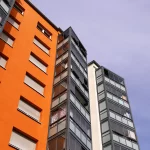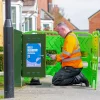Cityfibre Confirm 14 UK Towns and Cities for Phase 2 FTTH Rollout
Cityfibre has today confirmed the next 14 UK cities and towns (only three are new additions) to benefit from Phase Two their £2.5bn rollout of a new Gigabit capable Fibre-to-the-Home (FTTH) broadband network, which is being supported by residential ISP partner Vodafone and aims to cover 5 million premises by 2025.
The £2.5bn project was first announced last October 2018 (full details), which included a list of the 37 towns and cities being targeted and today’s announcement effectively brings this to 41 with the addition of Inverness, Ipswich and Lowestoft. As usual these are all locations where Cityfibre already has or will soon have a Dark Fibre network to build outwards from (initially used for connecting public sector and / or business sites).
So far Cityfibre has split their plans into two phases. Phase One, which is already in the build stage, involves an investment of around £500m and aims to cover a “minimum” of 1 million homes and businesses in 12 cities and towns by the end of 2021. So far construction has already started in 10 of those and the first services have gone live in 5 of them.
Advertisement
Until today the plan for Phase Two had not yet been confirmed but did contain a tentative list of 25 additional towns and cities. The 14 confirmed today (including the three new additions) will ultimately add an additional 1 million premises (total of 2 million) to Cityfibre’s confirmed roll-out plan. Obviously this still leaves 3 million left to be confirmed but there’s plenty of time for that.
The operator estimates that over 3,250 construction (engineering) jobs will be created as a result of the locations confirmed so far (potentially reaching 5,000 once all of the areas for the 5 million target have been fully confirmed). On completion, Cityfibre claims the total economic impact of “full fibre” in these locations alone could exceed £16.3bn, creating over 115,000 indirect jobs (we always take such figures with a pinch of salt).
Confirmed Phase One Areas (12) – c.1m premises
Milton Keynes (£40m)
Aberdeen (£40m)
Bournemouth (£38m) – Cityfibre already has a legacy FTTH network to c.20k premises
Peterborough (£30m)
Edinburgh (£100m)
Coventry (£60m)
Huddersfield (£30m)
Stirling (£10m)
Cambridge (£20m) – c.60,000 premises
Leeds (£120m)
Southend-on-Sea (£35m) – c.100,000 premises
Northampton (£40m)Confirmed Phase Two Areas (14) – c.1m premises
Batley
Bradford
Derby
Dewsbury
Doncaster
Inverness (NEW Addition)
Ipswich (NEW Addition)
Leicester
Lowestoft (NEW Addition)
Newcastle-upon-Tyne (£50m)
Rotherham
Slough
Swindon
Worthing (£25m)Future Locations (15)
Bath
Bracknell
Bristol
Crawley
Glasgow
Halifax
Harrogate
Maidenhead
Manchester
Nottingham
Reading
Sheffield
Southampton
Wakefield
Worthing
Consumers in these areas are offered packages via Vodafone’s Gigafast Broadband service, which currently costs from £28 a month for an unlimited 100Mbps (symmetric speed) service on an 18 month contract – including free installation (you also get a good wireless router) – and this rises to £48 per month for their top 900Mbps+ (Gigabit) tier.
Cleverly Vodafone has managed to negotiate a degree of exclusivity over access to Cityfibre’s network during the build stage (all without having to fund the build itself), although eventually this will come to an end and other ISPs will then be able to join the platform.
Advertisement
Greg Mesch, CityFibre CEO, said:
“CityFibre’s sole purpose is to deliver the future-proof digital infrastructure the UK deserves. With a new Prime Minister set to increase government’s ambitions for the pace of full fibre rollout, we are delighted to welcome another 14 towns and cities to our Gigabit City Club. These Gigabit Cities will not only gain new full fibre networks that will spark their digital transformation, but also unleash the benefits that only competitive infrastructure investment can bring.
Our rollout to five million homes is gathering momentum. We have now confirmed 26 locations and over two million homes in our programme. We are investing, we are building, and we are connecting customers to networks of the future.”
Cllr Margaret Davidson, Leader of The Highland Council, said:
“We are delighted to see Inverness confirmed as part of CityFibre’s national full fibre rollout. Digital infrastructure, fit for the 21st century, is critical to Inverness’ future – a city-wide roll-out of full fibre from CityFibre will ensure we have the best possible platform in place. The full roll-out builds on work led by the Council on an ultrafast network for the public sector. Full fibre delivers the potential to transform how we communicate, the way we live and work, it will drive economic growth and innovation and help our communities & businesses thrive in a rapidly changing world.”
As ever the biggest threat to Cityfibre’s plan comes from rival “ultrafast broadband” (100Mbps+) networks. Cable operator Virgin Media is already able to offer 500Mbps+ broadband speeds to many of the same areas and they’ll soon start offering Gigabit performance once their DOCSIS 3.1 network begins going live this year in several UK cities (details).
Similarly Openreach (BT) are busy ramping up their own FTTP network to reach 15 million premises by around 2025 and this too will be deploying into many of the same locations as Cityfibre. Openreach also has an ultrafast hybrid fibre solution via G.fast but there’s now a big question mark over whether or not that will reach the 5.7 million premises it’s currently targeted to cover by March 2021.
Lest we forget that some major alternative network (altnet) ISPs, such as Hyperoptic, are already playing in many of the same areas and there are others too (see our Summary of UK Full Fibre ISP Plans). Suffice to say that the market for new ultrafast networks in urban areas is turning into an aggressively competitive battlefield and it’s currently too early to call a winner.
Much will of course depend upon whether or not Cityfibre and Vodafone can generate strong take-up over time but it will probably be a couple of years before we know how that side of things is going. At the same time it’s been widely reported that both of the candidates to be the UK’s next Prime Minister have promised to dramatically accelerate full fibre (here), which may or may not help Cityfibre.
Advertisement
At present Boris Johnson has set the welcome but seemingly impossible target of achieving nationwide coverage by 2025, while Jeremy Hunt has opted for the slightly less dramatic but still totally unrealistic date of 2027 (note: the current target is 2033 and even that seems ambitious to us). So far as we can tell neither of these two have consulted the industry before setting out their plans.
The only way that we can see this being even remotely possible is if they watered down the definition of “full fibre” or “premises passed” in such a way as to include Virgin Media’s hybrid fibre network, while at the same time throwing billions of pounds on the table. Even so you’d still have to find a way of doing the 30% of premises in a very short space of time and all without ruining the competitive market.

Mark is a professional technology writer, IT consultant and computer engineer from Dorset (England), he also founded ISPreview in 1999 and enjoys analysing the latest telecoms and broadband developments. Find me on X (Twitter), Mastodon, Facebook, BlueSky, Threads.net and Linkedin.
« Avonline Networks to Help Virgin Media Build FTTP for 70K Premises
ISP EE Discounts £2 from Monthly Broadband and Phone Prices »


















































Comments are closed